
Explore the Vibrant Heart of Knoxville: University of Tennessee
The University of Tennessee in Knoxville is more than just an academic hub; it is a dynamic blend of history, culture, and youthful energy. Nestled in the heart of Knoxville, this area is where tradition meets innovation, offering visitors a unique glimpse into the life of one of America's most storied universities. From the iconic Neyland Stadium, where the Volunteers rally their orange-clad fans, to the historic buildings and lush green spaces, there's something for everyone to enjoy. The campus is a feast for the eyes with its mix of classic and modern architecture. Take a stroll through the beautiful pedestrian pathways lined with majestic trees and well-manicured lawns. Don't miss the stunning Ayres Hall, a symbol of the university, standing proudly at the top of “The Hill.” For art lovers, the UT Gardens and the Ewing Gallery of Art and Architecture offer serene spots to explore. Beyond the campus, the surrounding neighborhood is filled with charming cafes, eclectic boutiques, and a variety of dining options, making it a perfect destination for foodies and shoppers alike. Cumberland Avenue, known as “The Strip,” is the place to be for nightlife, with an array of bars and live music venues that capture the vibrant spirit of Knoxville. Whether you're here for a game, a cultural event, or just to soak in the atmosphere, the University of Tennessee neighborhood promises an unforgettable experience.
Local tips in University of Tennessee
- Visit Neyland Stadium during football season for an electrifying game day experience.
- Take a guided tour of the historic Ayres Hall for stunning views and rich history.
- Explore 'The Strip' on Cumberland Avenue for the best local dining and nightlife.
- Don't miss the UT Gardens for a peaceful retreat within the bustling campus.
- Check the university's event calendar for cultural events, lectures, and performances open to the public.
Explore the Vibrant Heart of Knoxville: University of Tennessee
The University of Tennessee in Knoxville is more than just an academic hub; it is a dynamic blend of history, culture, and youthful energy. Nestled in the heart of Knoxville, this area is where tradition meets innovation, offering visitors a unique glimpse into the life of one of America's most storied universities. From the iconic Neyland Stadium, where the Volunteers rally their orange-clad fans, to the historic buildings and lush green spaces, there's something for everyone to enjoy. The campus is a feast for the eyes with its mix of classic and modern architecture. Take a stroll through the beautiful pedestrian pathways lined with majestic trees and well-manicured lawns. Don't miss the stunning Ayres Hall, a symbol of the university, standing proudly at the top of “The Hill.” For art lovers, the UT Gardens and the Ewing Gallery of Art and Architecture offer serene spots to explore. Beyond the campus, the surrounding neighborhood is filled with charming cafes, eclectic boutiques, and a variety of dining options, making it a perfect destination for foodies and shoppers alike. Cumberland Avenue, known as “The Strip,” is the place to be for nightlife, with an array of bars and live music venues that capture the vibrant spirit of Knoxville. Whether you're here for a game, a cultural event, or just to soak in the atmosphere, the University of Tennessee neighborhood promises an unforgettable experience.
Iconic landmarks you can’t miss
Marble Springs State Historic Site
Explore Marble Springs State Historic Site, where Tennessee's history comes alive amidst beautiful landscapes and rich heritage.
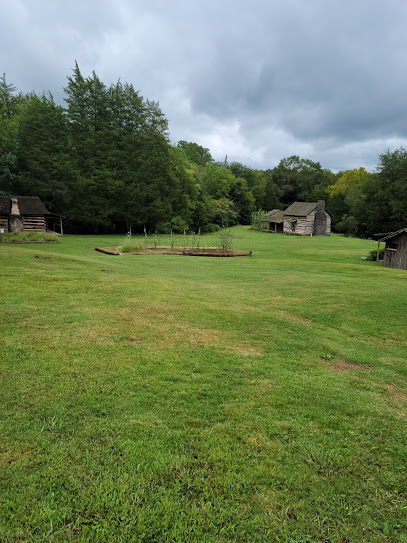
Historic Ramsey House
Explore the Historic Ramsey House in Knoxville, TN, a captivating museum that showcases the rich history and heritage of the region.
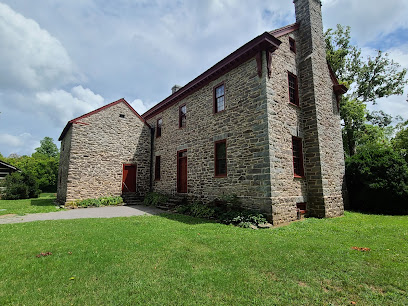
Blount Mansion
Explore Blount Mansion, Knoxville's historical gem, where the past comes alive with captivating exhibits and stunning architecture.
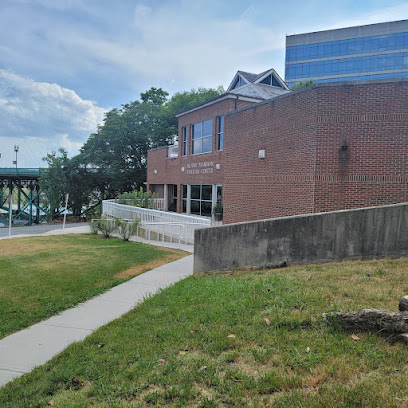
Mabry-Hazen House
Discover the enchanting history of Knoxville at the Mabry-Hazen House, where captivating stories of the past come to life amidst stunning architecture.
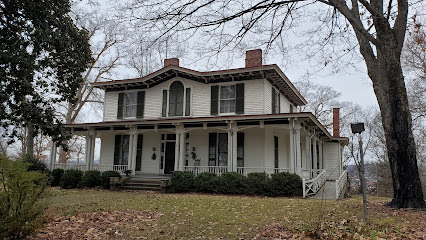
Torchbearer Statue, University of Tennessee
Explore the Torchbearer Statue at the University of Tennessee, a symbol of pride and enlightenment in Knoxville, TN.
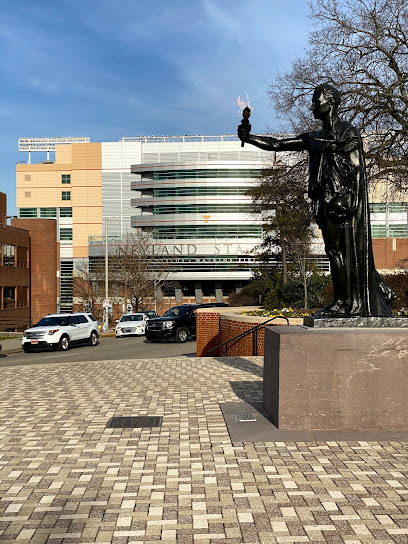
The Rock
Explore The Rock at the University of Tennessee, a historical landmark filled with student creativity and university spirit in Knoxville, TN.
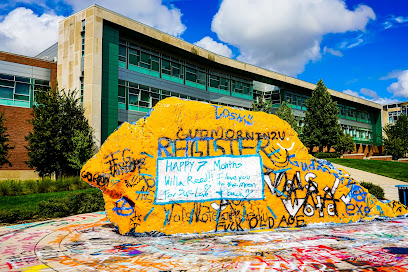
Ayres Hall
Explore Ayres Hall, the architectural wonder of the University of Tennessee, where history meets a vibrant educational atmosphere, perfect for every traveler.
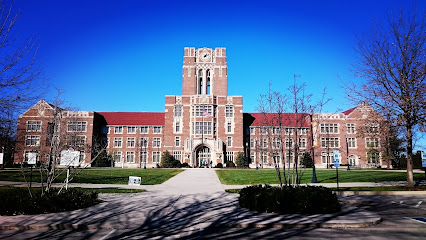
Tennessee Woman Suffrage Memorial
Explore the Tennessee Woman Suffrage Memorial in Knoxville, a significant historical landmark celebrating the women's fight for voting rights and equality.
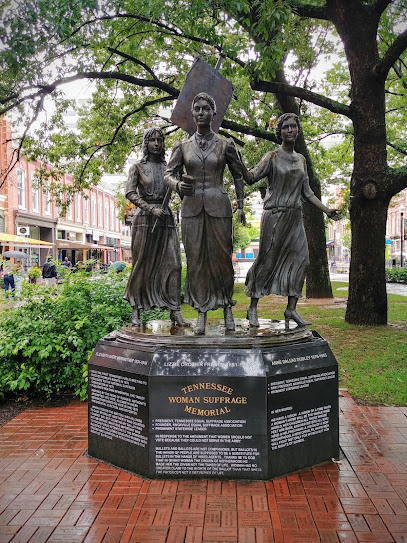
Knoxville College Historic Marker
Explore the Knoxville College Historic Marker, a key site reflecting the educational heritage and resilience of the African American community in Knoxville.
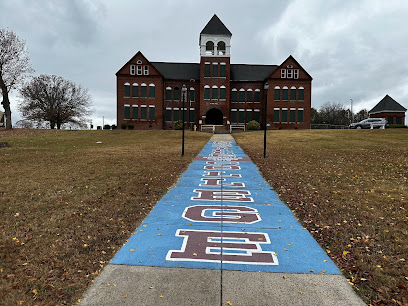
University of Tennessee Press
Discover the literary treasures of the University of Tennessee Press in downtown Knoxville, a hub of Southern culture and scholarship.
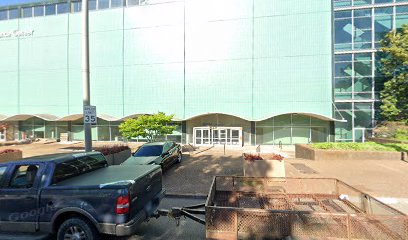
Unmissable attractions to see
Zoo Knoxville
Discover Zoo Knoxville: A family-friendly wildlife adventure showcasing diverse species and engaging educational experiences in the heart of Tennessee.

World's Fair Park
Discover the beauty of Knoxville at World's Fair Park, a historic and lively destination perfect for relaxation and exploration.

Ijams Nature Center
Discover the beauty of Ijams Nature Center in Knoxville, a nature preserve that offers hiking, education, and family-friendly activities amidst stunning landscapes.
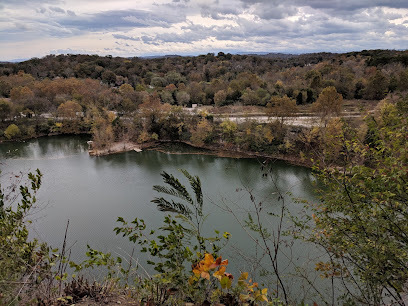
Muse Knoxville
Explore creativity and knowledge at Muse Knoxville, an engaging children's museum offering interactive exhibits and educational fun for all ages.
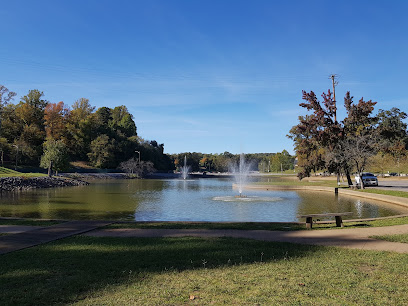
UT Gardens Knoxville
Explore the beauty of UT Gardens Knoxville, a serene botanical haven featuring diverse plant collections and seasonal events in the heart of Tennessee.
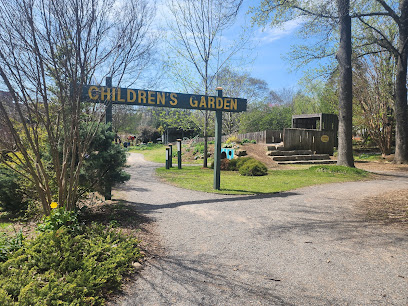
Suttree Landing Park
Experience the tranquility of Suttree Landing Park, a waterfront oasis in Knoxville, perfect for relaxation, recreation, and family fun.
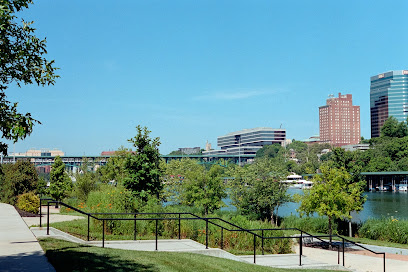
McClung Museum of Natural History & Culture
Explore the McClung Museum of Natural History & Culture - A treasure trove of art and natural history in the heart of Knoxville's University of Tennessee campus.
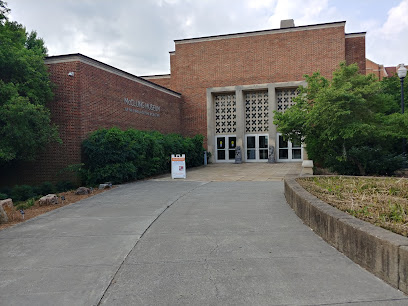
The Rock
Explore The Rock at the University of Tennessee, a vibrant historical landmark symbolizing student creativity and community spirit in Knoxville.
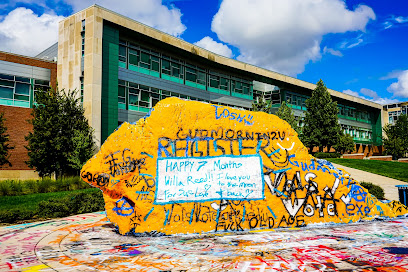
Essential places to dine
Calhoun's On The River
Experience authentic Southern barbecue at Calhoun's On The River, where delicious flavors meet breathtaking river views.
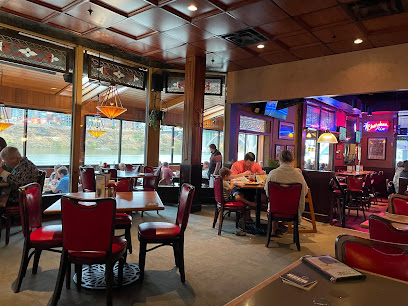
Stock & Barrel
Savor gourmet burgers and local flavors at Stock & Barrel in Knoxville's vibrant Market Square.
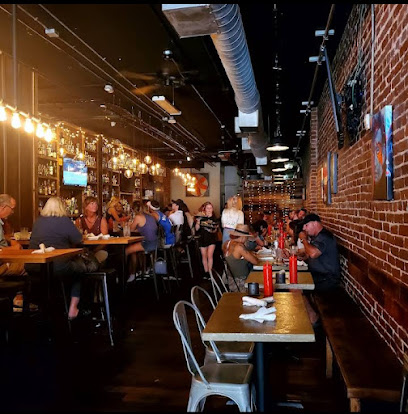
The Melting Pot
Discover an exquisite fondue experience at The Melting Pot in Knoxville – where every meal is a celebration of flavors and togetherness.
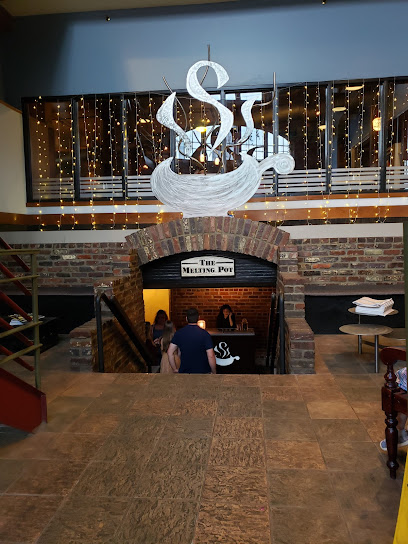
Tupelo Honey Southern Kitchen & Bar
Experience authentic Southern cuisine at Tupelo Honey Southern Kitchen & Bar in Knoxville—where every dish tells a story.
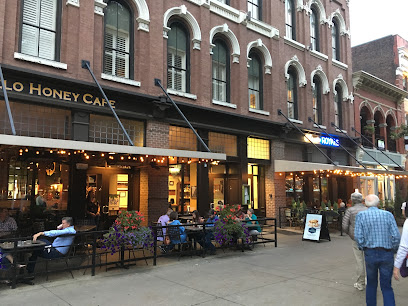
Not Watson's Kitchen + Bar
Experience innovative New American cuisine at Not Watson's Kitchen + Bar in Knoxville’s vibrant Market Square, where great food meets lively atmosphere.
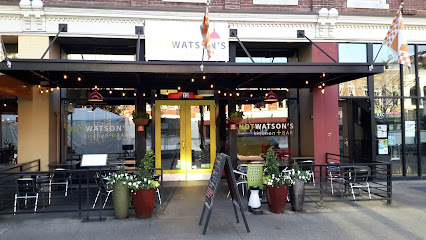
Myrtle's Chicken and Beer
Experience authentic Southern cuisine at Myrtle's Chicken and Beer in Knoxville—where comfort food meets local charm.
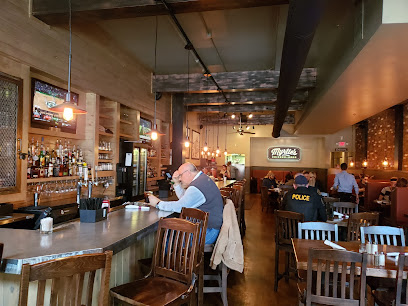
Oliver Royale
Discover Oliver Royale: A premier New American restaurant in Knoxville offering seasonal dishes and a vibrant atmosphere.
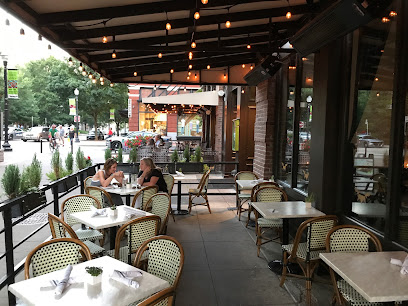
J.C. Holdway
Experience the essence of Southern cuisine at J.C. Holdway in downtown Knoxville—where local ingredients meet culinary creativity.
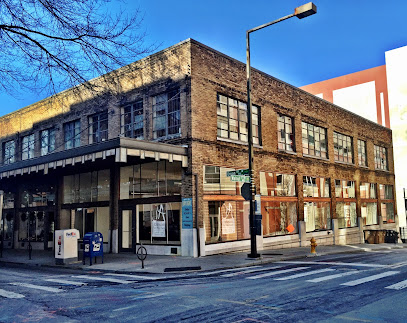
UTK Southern Kitchen
Experience authentic Southern comfort food at UTK Southern Kitchen in Knoxville - where every bite tells a story.
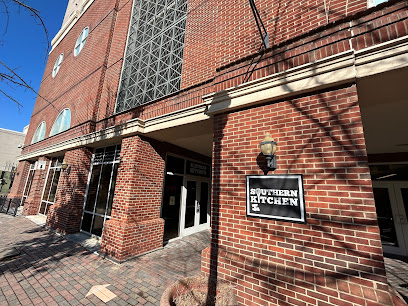
The Drawing Room
Discover The Drawing Room in downtown Knoxville for an exquisite American dining experience featuring local flavors and stunning views.
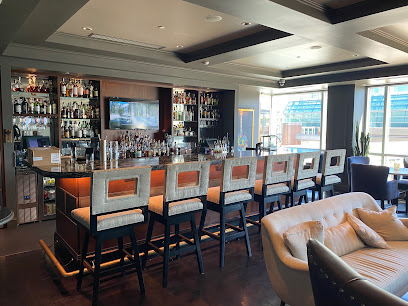
Markets, malls and hidden boutiques
Mast General Store Knoxville
Explore the unique offerings of Mast General Store Knoxville, where outdoor adventure meets nostalgic shopping in the heart of downtown.
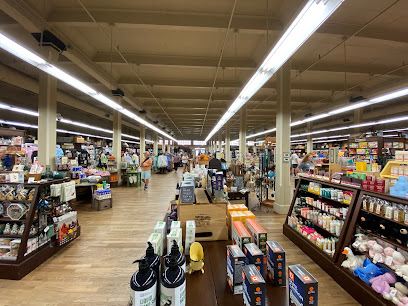
VolShop
Explore VolShop for the best selection of University of Tennessee apparel, books, and memorabilia in Knoxville.
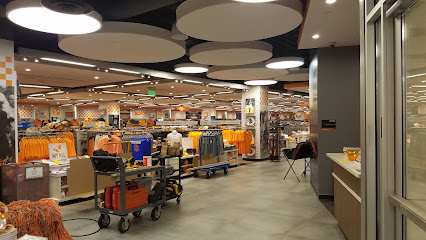
BoxLunch
Discover a treasure trove of gifts, apparel, and collectibles at BoxLunch, where fandom meets social impact in Knoxville, TN.
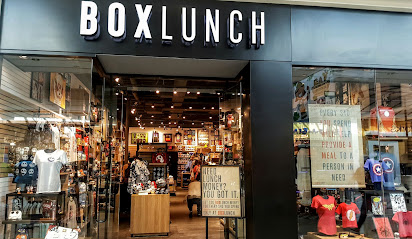
Nothing Too Fancy
Explore Knoxville's charm at Nothing Too Fancy, your go-to gift shop for unique souvenirs and stylish local apparel.
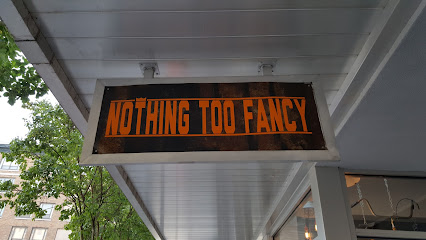
The Southern Market
Discover unique gifts that embody Southern charm at The Southern Market in Knoxville, TN, a must-visit for every traveler.
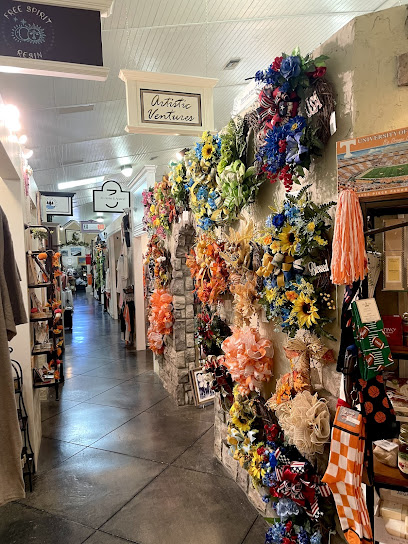
RALA - Gifts + Local Art
Explore RALA in Knoxville's Old City for a unique selection of handmade gifts and local art that embodies the spirit of Tennessee.
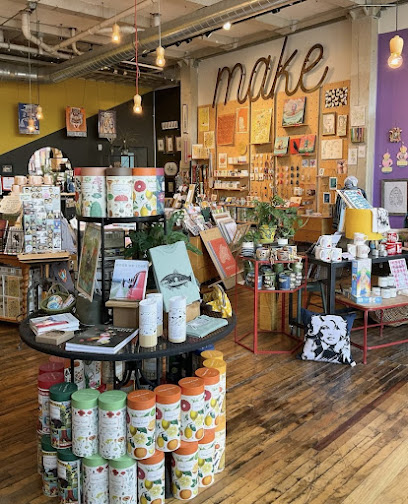
Earth To Old City
Explore Earth To Old City, Knoxville's charming gift shop offering unique treasures and local crafts in the heart of the historic Market Square.
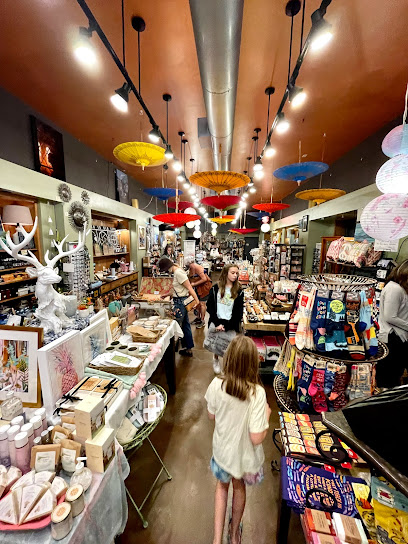
Bethie Lous Fabulous Gift Store
Explore Bethie Lou's Fabulous Gift Store in Knoxville for unique souvenirs, handcrafted treasures, and a touch of local artistry.
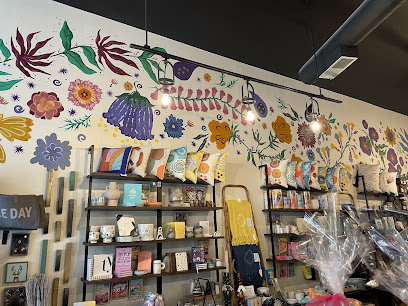
me and co.
Explore me and co. in Knoxville for unique gifts and custom designs, reflecting the local culture and artistry.
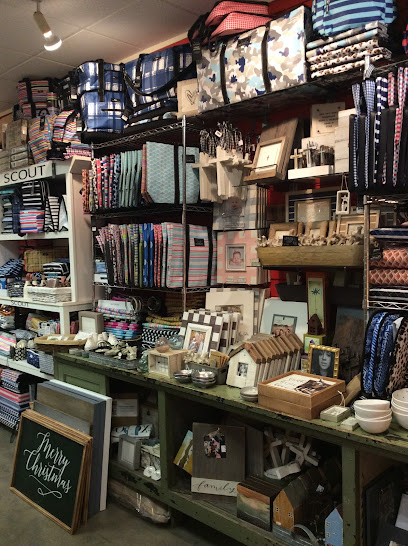
Urban Market Knoxville
Discover unique local treasures at Urban Market Knoxville, where boutique charm meets community spirit in a delightful shopping experience.
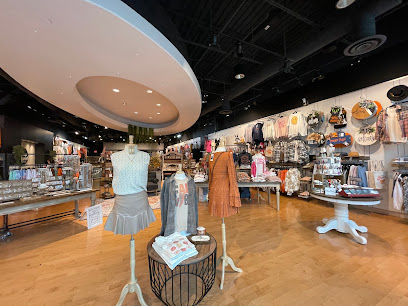
Essential bars & hidden hideouts
Boyd’s Jig and Reel
Experience the heart of Knoxville at Boyd's Jig and Reel - a pub offering exquisite food, craft beers, and unforgettable live music performances.
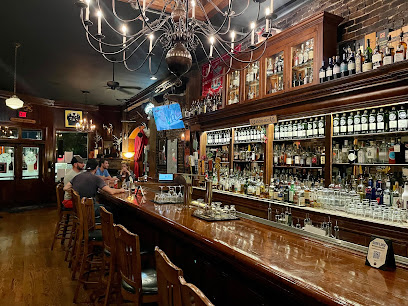
Suttree's High Gravity Tavern
Experience the heart of Knoxville's craft beer culture at Suttree's High Gravity Tavern, where every sip tells a story.
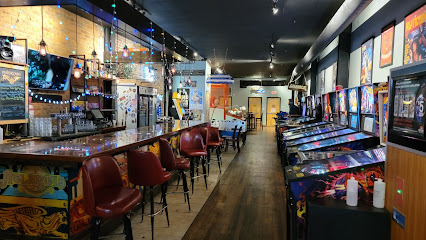
Fieldhouse Social
Discover Fieldhouse Social in Knoxville, TN - A vibrant restaurant offering diverse dishes and a lively atmosphere for an unforgettable culinary experience.
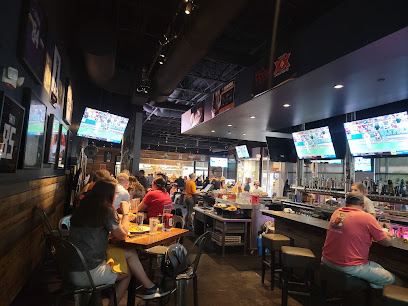
Peter Kern Library
Experience the literary charm of Peter Kern Library, Knoxville's unique bar offering sophisticated cocktails in a cozy, inviting atmosphere.
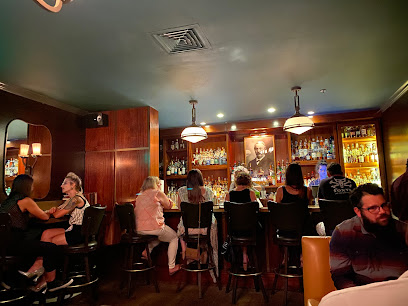
Urban Bar & Corner Cafe
Discover the lively Urban Bar & Corner Cafe in Knoxville, where delicious food, refreshing drinks, and a vibrant atmosphere await.
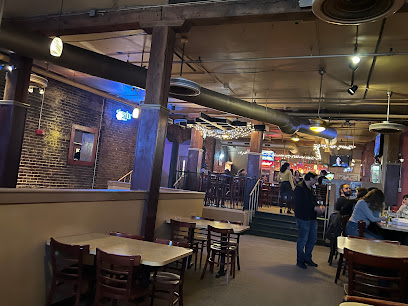
Cool Beans Bar and Grill
Experience the lively ambiance and delicious grill cuisine at Knoxville's beloved Cool Beans Bar and Grill.
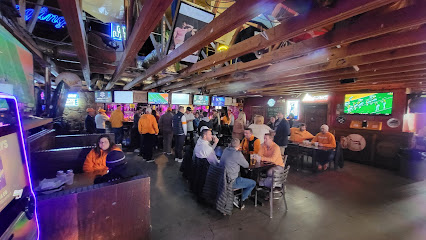
The Hill Bar and Grill
Experience the best of Knoxville at The Hill Bar and Grill, where delicious food meets sports excitement in a welcoming atmosphere.
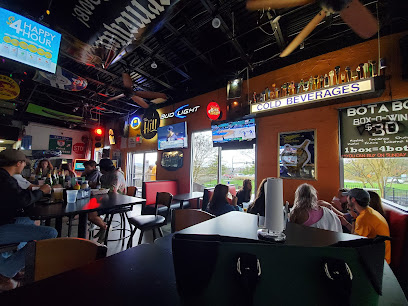
The Public House
Discover the lively ambiance and extensive drink selection at The Public House, Knoxville's premier bar destination for tourists.
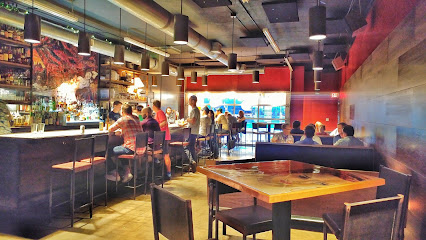
The Half Barrel
Discover the vibrant nightlife of Knoxville at The Half Barrel, a bar with craft beers, cocktails, and arcade fun!
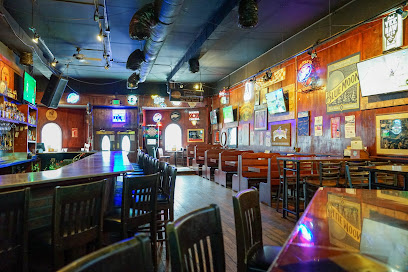
LiterBoard
Experience the vibrant college nightlife at LiterBoard, a fun bar in Knoxville, perfect for students and visitors to unwind and socialize.
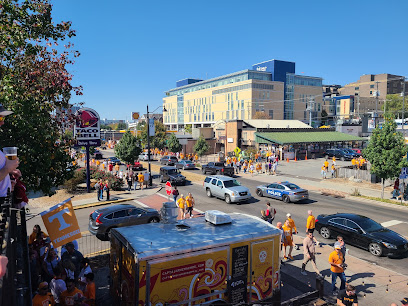
Local Phrases
-
- HelloHowdy
[haw-dee] - GoodbyeSee ya
[see yuh] - YesYup
[yuhp] - NoNah
[nah] - Please/You're welcomePlease/No problem
[pleez/no problum] - Thank youThanks
[thanks] - Excuse me/SorryPardon me/My bad
[pahr-dn me/my bad] - How are you?How y'all doin'?
[how yall doin] - Fine. And you?Doin' well. How 'bout you?
[doin well. how bout yuh] - Do you speak English?Ya speak English?
[ya speak ing-lish] - I don't understandI ain't gettin' ya
[I aint get-tin yuh]
- HelloHowdy
-
- I'd like to see the menu, pleaseCan I see the menu, please
[can I see the menu, please] - I don't eat meatI don't eat meat
[I don't eat meat] - Cheers!Cheers!
[cheers] - I would like to pay, pleaseCan I pay now, please
[can I pay now, please]
- I'd like to see the menu, pleaseCan I see the menu, please
-
- Help!Help!
[help] - Go away!Git outta here!
[git out-ta here] - Call the Police!Call the cops!
[call the cops] - Call a doctor!Get a doc!
[get a doc] - I'm lostI'm lost
[I'm lost] - I'm illI'm feelin' sick
[I'm feelin sick]
- Help!Help!
-
- I'd like to buy...I wanna buy...
[I wanna buy] - I'm just lookingJust browsin'
[just browsin] - How much is it?How much does it cost?
[how much does it cost] - That's too expensiveThat's a bit steep
[thats a bit steep] - Can you lower the price?Can ya cut the price?
[can ya cut the price]
- I'd like to buy...I wanna buy...
-
- What time is it?What's the time?
[whats the time] - It's one o'clockIt's one o'clock
[It's one o'clock] - Half past (10)Half past ten
[half past ten] - MorningMornin'
[mornin] - AfternoonAfternoon
[afternoon] - EveningEvenin'
[evenin] - YesterdayYest'day
[yest-day] - TodayToday
[today] - TomorrowTomorra
[tomorra] - 1One
[wun] - 2Two
[too] - 3Three
[three] - 4Four
[four] - 5Five
[five] - 6Six
[six] - 7Seven
[seven] - 8Eight
[eight] - 9Nine
[nine] - 10Ten
[ten]
- What time is it?What's the time?
-
- Where's a/the...?Where's the...?
[wheres the] - What's the address?What's the address?
[whats the address] - Can you show me (on the map)?Can ya show me (on the map)?
[can ya show me (on the map)] - When's the next (bus)?When's the next (bus)?
[whens the next (bus)] - A ticket (to ....)A ticket (to ....)
[a ticket (to)]
- Where's a/the...?Where's the...?
History of University of Tennessee
-
The University of Tennessee was established in 1794, making it one of the oldest public universities in the United States. Originally founded in Nashville, the institution moved to Knoxville in 1826, where it became a significant center for higher education in the region. This relocation marked the beginning of a long and storied relationship between the university and the city, contributing to Knoxville's development as a cultural and educational hub.
-
During the American Civil War, the University of Tennessee was affected by the conflict, with its campus being used as a hospital for Union soldiers. The war disrupted academic life, and many students and faculty members were involved in the conflict. The university's role during this tumultuous period is a notable aspect of its history, reflecting the broader societal changes occurring in Knoxville and Tennessee at the time.
-
Following World War II, the University of Tennessee experienced significant growth due to the influx of returning veterans and the G.I. Bill. This era saw the expansion of academic programs, the construction of new facilities, and an increase in enrollment. The university's development paralleled Knoxville's growth, leading to a stronger community connection and the establishment of the university as a key player in the region's cultural and economic landscape.
-
The 1960s brought a wave of activism to the University of Tennessee, reflecting the national Civil Rights Movement. Students organized protests and sit-ins, advocating for racial equality and social justice. The university's response to these movements played a crucial role in shaping its policies and promoting a more inclusive environment, contributing to the broader societal changes occurring in Knoxville and the South.
-
Knoxville hosted the 1982 World's Fair, which significantly impacted the University of Tennessee and the surrounding area. The fair showcased advancements in technology, education, and culture, and the university played a vital role in many events and exhibitions. The fair's legacy can still be seen in Knoxville today, promoting a sense of pride and community that continues to influence the university's identity.
University of Tennessee Essentials
-
The University of Tennessee is easily accessible from various neighborhoods in Knoxville. If you are arriving by car, the campus is located just off Interstate 40. Public transport options include the Knoxville Area Transit (KAT) buses, which service the area frequently. For those coming from downtown Knoxville, the KAT route 11 provides direct access to the university. Taxis and rideshare services like Uber and Lyft are also available throughout the city.
-
The University of Tennessee campus is pedestrian-friendly, with many attractions within walking distance. The KAT buses are a convenient option for traveling around the university and connecting to other parts of Knoxville. Bicycles are another popular mode of transport, and bike lanes are available in various areas of the campus. For those preferring to drive, parking is available, but be mindful of campus regulations regarding permits.
-
The University of Tennessee area is generally safe for tourists, but it is advisable to stay aware of your surroundings, especially at night. While the campus itself has a low crime rate, certain areas around the university, particularly off-campus housing and some neighborhoods to the east, have reported higher crime rates. It is recommended to avoid walking alone late at night in these areas and to keep valuables secure.
-
In case of an emergency, dial 911 for police, fire, or medical assistance. The university has its own police department, which can be contacted at (865) 974-3111 for non-emergencies. Local hospitals are available nearby, including the University of Tennessee Medical Center. It is advisable to have travel insurance that covers medical emergencies.
-
Fashion: Do wear comfortable clothing suitable for walking, especially during campus tours. Don't wear excessively revealing clothing, as it may not be well-received in academic settings. Religion: Do respect local customs; while the university is secular, many students come from diverse backgrounds. Public Transport: Do give up your seat for elderly passengers. Don't eat or drink on public transport. Greetings: Do greet others with a friendly smile or nod. Don't be overly formal; a casual approach is appreciated. Eating & Drinking: Do try local eateries around the campus. Don't litter or leave food waste in public areas.
-
To experience the University of Tennessee like a local, visit the student-run markets and food trucks that often gather around the campus, offering diverse culinary options. Attend a sporting event at Neyland Stadium or Thompson-Boling Arena for an authentic experience of the local culture. Engage with students and faculty, as they can provide insights and recommendations on lesser-known attractions. Don't miss the UT Gardens for a peaceful outdoor experience.
Nearby Cities to University of Tennessee
-
Things To Do in Oak Ridge
-
Things To Do in Pigeon Forge
-
Things To Do in Gatlinburg
-
Things To Do in Asheville
-
Things To Do in Johnson City
-
Things To Do in Chattanooga
-
Things To Do in Greenville
-
Things To Do in Greer
-
Things To Do in Mauldin
-
Things To Do in Anderson
-
Things To Do in Boone
-
Things To Do in Spartanburg
-
Things To Do in Lebanon
-
Things To Do in Murfreesboro
-
Things To Do in Smyrna













